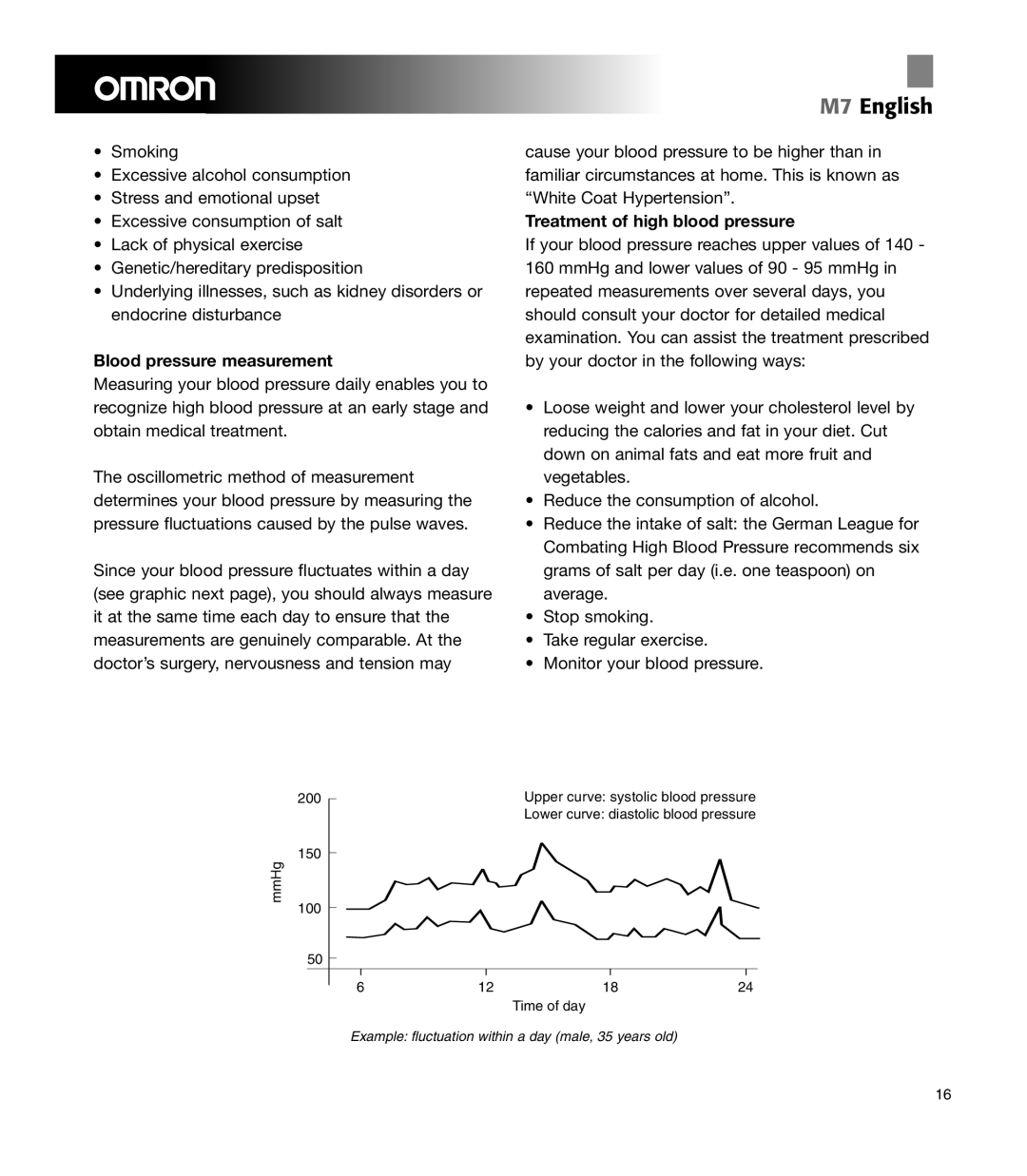
•Smoking
•Excessive alcohol consumption
•Stress and emotional upset
•Excessive consumption of salt
•Lack of physical exercise
•Genetic/hereditary predisposition
•Underlying illnesses, such as kidney disorders or endocrine disturbance
Blood pressure measurement
Measuring your blood pressure daily enables you to recognize high blood pressure at an early stage and obtain medical treatment.
The oscillometric method of measurement determines your blood pressure by measuring the pressure fluctuations caused by the pulse waves.
Since your blood pressure fluctuates within a day (see graphic next page), you should always measure it at the same time each day to ensure that the measurements are genuinely comparable. At the doctor’s surgery, nervousness and tension may
M7 English
cause your blood pressure to be higher than in familiar circumstances at home. This is known as “White Coat Hypertension”.
Treatment of high blood pressure
If your blood pressure reaches upper values of 140 - 160 mmHg and lower values of 90 - 95 mmHg in repeated measurements over several days, you should consult your doctor for detailed medical examination. You can assist the treatment prescribed by your doctor in the following ways:
•Loose weight and lower your cholesterol level by reducing the calories and fat in your diet. Cut down on animal fats and eat more fruit and vegetables.
•Reduce the consumption of alcohol.
•Reduce the intake of salt: the German League for Combating High Blood Pressure recommends six grams of salt per day (i.e. one teaspoon) on average.
•Stop smoking.
•Take regular exercise.
•Monitor your blood pressure.
200 |
| Upper curve: systolic blood pressure | |
|
| Lower curve: diastolic blood pressure | |
150 |
|
|
|
mmHg |
|
|
|
100 |
|
|
|
50 |
|
|
|
6 | 12 | 18 | 24 |
Time of day
Example: fluctuation within a day (male, 35 years old)
16
